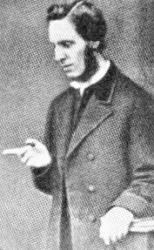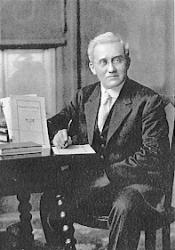1779 - 1847 Hymnal Number: d133 Author of "Savior, like a shepherd lead us" in Divine Praise Dorothy Ann Thrupp was born in London, June 10, 1779. She contributed some hymns, under the pseudonym of "Iota," to W. Carus Wilson's Friendly Visitor and his Children's Friend. Other hymns by her, signed "D.A.T.," appeared in Mrs. Herbert Mayo's Selection of Hymns and Poetry for the Use of Infant Schools and Nurseries, 1838. She was also the editor of Hymns for the Young, c. 1830, in which all the hymns were given anonymously. She died in London on December 15, 1847.
--The Hymnal 1940 Companion
================================
Thrupp, Dorothy Ann, daughter of Joseph Thrupp, of Paddington Green, was born at London, June 20, 1779 and died there on Dec. 14, 1847. Her hymns, a few of which have come into extensive use, were contributed to the Rev. W. Carus Wilson's Friendly Visitor and his Children's Friend, under the nom de plume of Iota; to Mrs. Herbert Mayo's Selection of Hymns and Poetry for the use of Infant Schools and Nurseries, 1838 (3rd ed. 1846, with change of title to A Sel. . . . of Infant and Juvenile Schools and Families), in which her signature is "D.A.T."; and also to the Hymns for the Young, which she herself edited for the Religious Tract Society circa 1830, 4th ed., 1836. In 1836 and 1837 she also published Thoughts for the Day (2nd series), in which she embodied many hymns which previously appeared in the Friendly Visitor. In addition to her hymns, which are annotated under their respective first lines there are also in common use:—
1. Come, Holy Spirit, come, 0 hear an infant's prayer. Child's Prayer. Appeared in Mrs. Mayo's Selection of Hymns and Poetry, 1838, No. 14, and signed "D.A.T."
2. God loves the little child that prays. God's love for Children. Given in Miss Thrupp's Hymns for the Young, 4th ed., 1836; and again in Mrs. Mayo's Selection of Hymns and Poetry&c, 2nd ed., 1840, and signed " D.A.T." It is sometimes given as "God loves the child that humbly prays."
3. Have you read the wondrous story? Life and Death of Jesus. This appeared anonymously in Miss Thrupp's Hymns for the Young, R. T. S., 1830, No. 12, in 5 stanzas of 4 lines. In Miss Thrupp's later publications this hymn is omitted, a fact which suggests that it was not her composition, but possibly that of a friend. It is in theLeeds Sunday School Union Hymn Book, 1833-78.
4. Let us sing with one accord. Praise of Jesus. This hymn is usually associated with Miss Thrupp's name, but on insufficient evidence. We find it in the 4th edition of her Hymns for the Young, 1836, and again in the 3rd ed. of Mrs. H. Mayo's Selection of Hymns and Poetry for the Use of Infant and Juvenile Schools, &c, 1846, and in both instances without signature. We know of no evidence which justifies us in ascribing the authorship with certainty to Miss Thrupp. The hymn is in the Leeds S. S. Union Hymn Book, 1833-78, and several others.
5. Poor and needy though I be. Divine Providence. Appeared in Miss Thrupp's Hymns for the Young, 4th ed., 1836, No. 22; and again in Mrs. Mayo's Selection of Hymns and Poetry>, &c, 2nd ed., 1840, and signed "D.A.T."
6. See, my child, the mighty ocean. Love of God compared to the Sea. Given in the R. T. S.'s Hymns for the Young, 4th ed., 1836, No. 26, and in Mrs. Mayo's Selection of Hymns and Poetry, &c, 1st ed., 1838, and signed "D.A. T." In Kennedy, 1863, it begins "Have you seen the mighty ocean."
7. Thou Guardian of my earliest days. Jesus the Children's Friend. This hymn we have traced to her Hymns for the Young, 4th ed., 1836. It is sometimes given as “Thou Guardian of our earliest days."
8. What a strange and wondrous story. Life and Death of Jesus. This hymn is found without signature in her Hymns for the Young, 4th ed., 1836, and again in Mrs. H. Mayo's Selection of Hys. and Poetry, 1838, No. 173, in 4 st. of 4 1, We have found no authority for ascribing it to Miss Thrupp.
9. What led the Son of God? Love of God in Christ. This appeared anonymously in her Hymns for the Young, 1830, and again in the Leeds S. S. Union Hymn Book, 1833. In modern collections it is attributed to Miss Thrupp, on the ground that it is found in the Hys. for the Young, which she edited.
10. Who are they in heaven who stand? All Saints. Published in Mrs. Mayo's Selection of Hys. and Poetry, 3rd ed., 1846, No. 64, in 5 stanzas of 4 lines, and signed A. D.T." It is in the Prim. Methodist Sunday School Hymn Book, 1879, and others.
Several additional hymns to those named above have also been attributed to Miss Thrupp on insufficient authority. This has probably arisen out of the fact that all the hymns in the Hymns for the Young, including her own, were given anonymously.
-- Excerpts from John Julian, Dictionary of Hymnology (1907)
Dorothy A. Thrupp


 My Starred Hymns
My Starred Hymns








